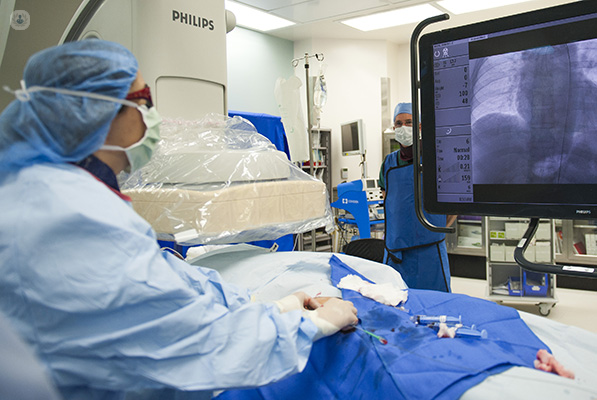



What is interventional cardiology?
Interventional cardiology is the branch of cardiology that diagnoses and treats structural heart problems using catheters inserted through blood vessels.
Catheters are thin tubes that can be used to perform a number of procedures. They are typically inserted into a large peripheral artery or vein (such as the femoral artery) and are fed through the blood vessel to the heart.
They may be used to gather data on the affected tissue by injecting a contrast agent that will show up on X-rays, for example. They can also be used to perform treatment, which may involve inserting replacement valves, placing stents, or even destroying problematic tissue or blood clots.
What conditions are treated by interventional cardiology?
Interventional cardiology may be used to treat a variety of conditions affecting the heart and/or adjacent blood vessels.
What procedures are included in interventional cardiology?
Alternatives to this treatment
The main alternative in many cases is open heart surgery, which is performed by a cardiothoracic surgeon. The risks are often higher in open surgery; on the other hand interventional cardiology takes a high level of training and expertise to perform.